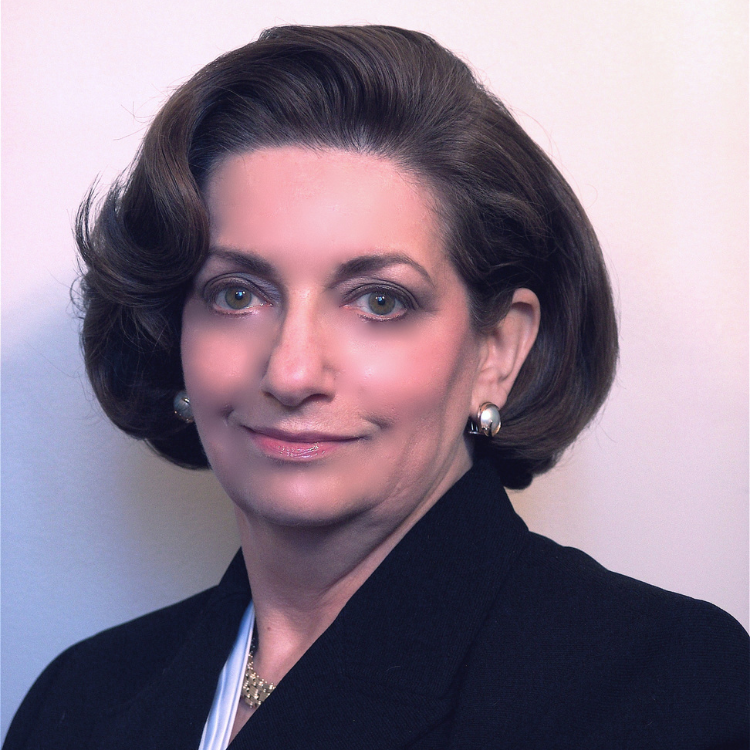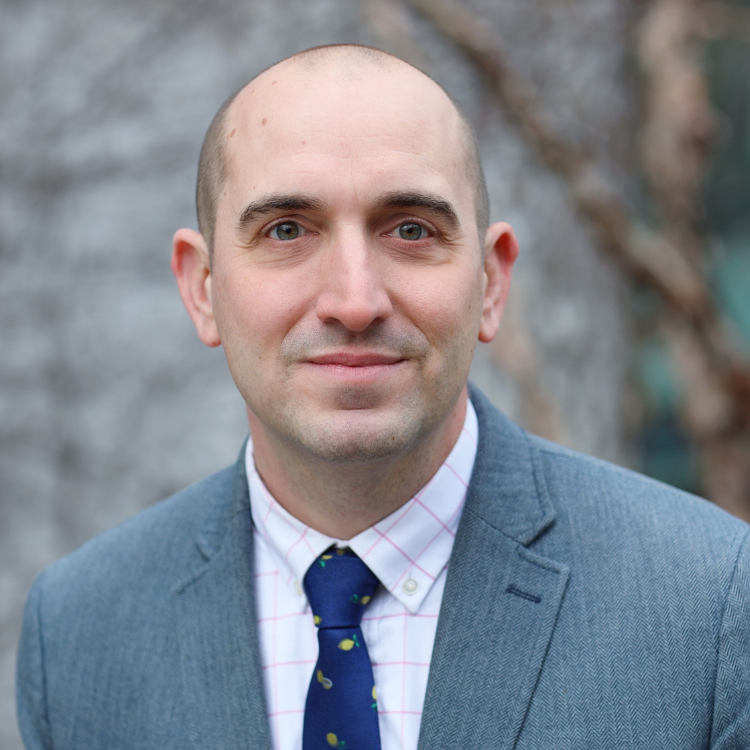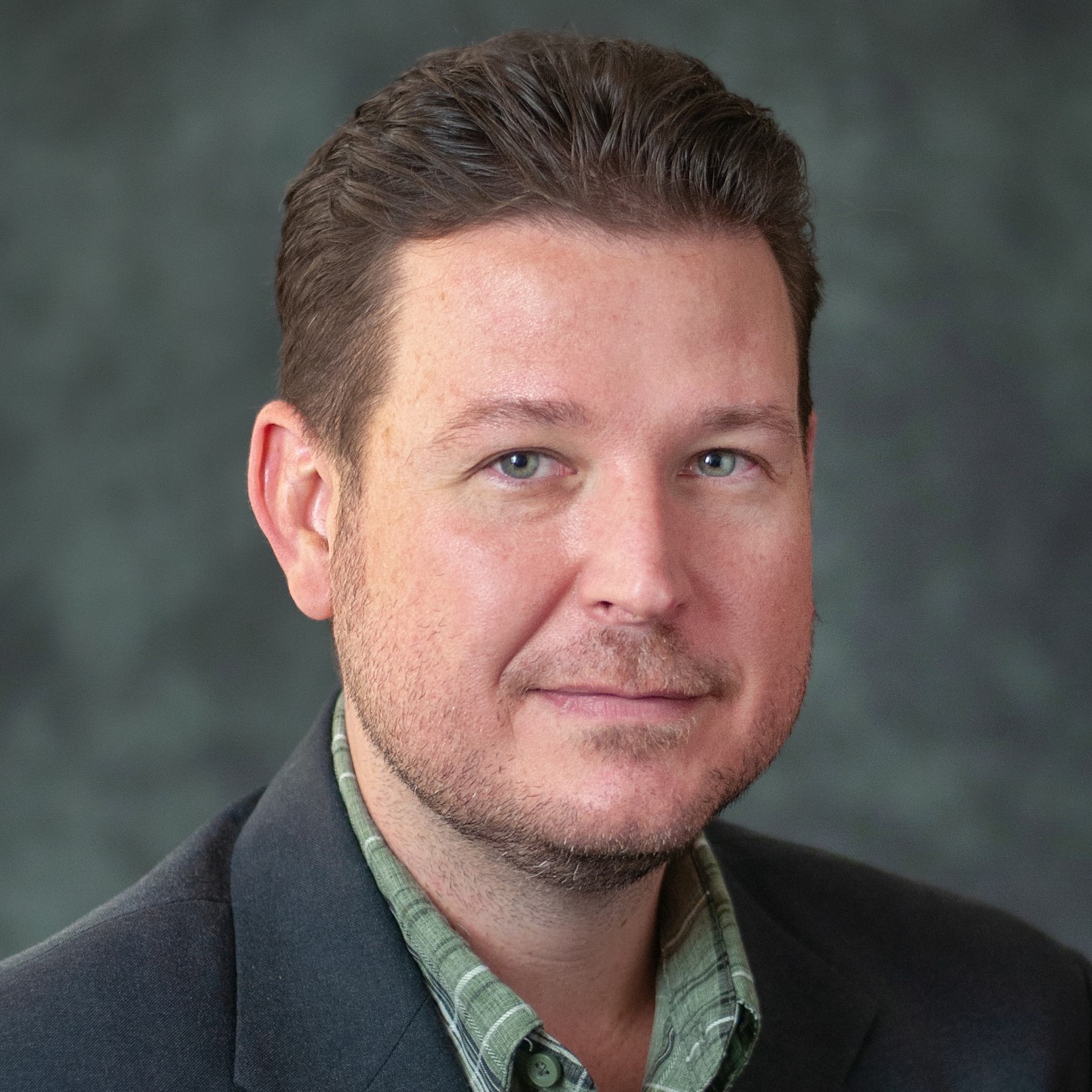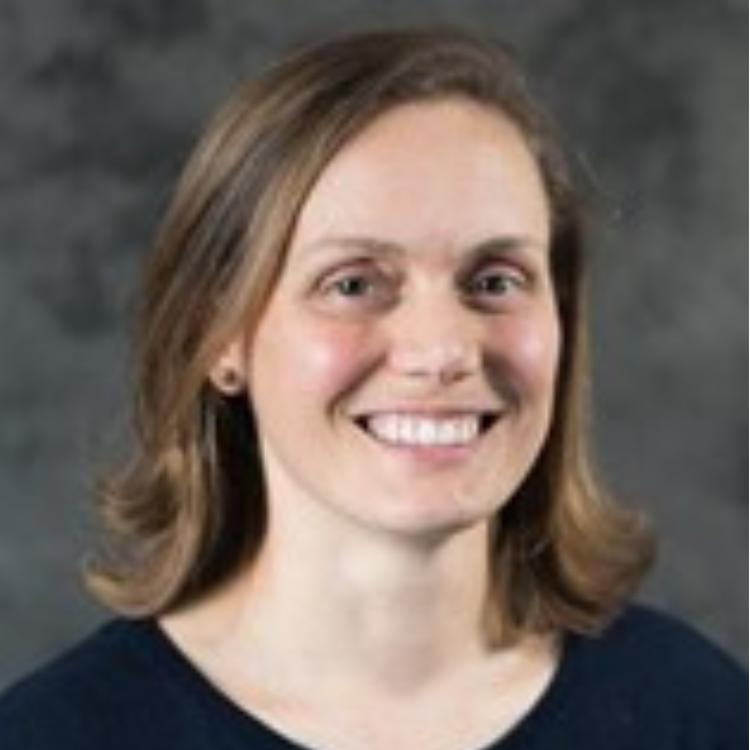Board of Directors
Get to know our officers and board members
Officers

Gregory Mattingly, M.D.
President
Washington University School of Medicine
1st Term: 2014 – 2018
2nd Term: 2019 – 2022
President Elect: 2022 – 2024
President: 2024 – 2026
Biography

Brooke Molina, Ph.D.
President Elect
University of Pittsburgh
1st Term: 2018 – 2021
1st Term: 2021 – 2024
President Elect: 2024 – 2026
Biography

Ann Childress, M.D.
Past President
Psychiatrist Center for Psychiatry and Behavioral Medicine, Inc.
1st Term: 2018 – 2021
President Elect: 2020 – 2022
President: 2022 – 2024
Past-President: 2024 – 2026
Biography


Margaret Sibley, Ph.D.
Secretary
Board Members






Michael Kofler, Ph.D.
Florida State University
Journal of Attention Disorder (JAD) Editor-in-Chief 2024 – Present




Keri Rosch, Ph.D.
Center for Neurodevelopmental and Imaging Research at Kennedy Krieger Institute
1st Term: 2022 – 2025
Biography
Dr. Waxmonsky is the Division Chief of Child Adolescent Psychiatry at the Hershey Medical Center, the University Chair in Child Psychiatry at Penn State and Professor of Psychiatry at the Penn State College of Medicine. He completed medical school and general psychiatry residency training at SUNY Buffalo and child fellowship at MGH. Over the past 20 years, he has worked in academics, with a clinical, research and teaching focus on ADHD. His research centers on the integration of medication and behavioral interventions targeting both children and their parents to improve the efficacy and tolerability of ADHD treatments. He has published over 90 peer reviewed articles or book chapters and served as a PI or CoI on over 40 different research trials with funding from NIH, industry and private foundations. He was recently awarded the AACAP Elaine Schlosser Lewis Award for Research on Attention-Deficit Disorder for his study examining the growth effects of CNS stimulants. He runs a clinical practice that provides assessment, psychosocial and pharmacological treatment services for ADHD across the lifespan. He also serves as a regional medical director for Pennsylvania’s Child Psychiatry Access Program where he has studied efforts to improve engagement with ADHD treatments in the primary care setting.
As a member of APSARD and a conference attendee, I have always been impressed the breadth of international expertise from academia, industry and the community who come together through APSARD to expand the evidence base for the assessment and treatment of ADHD across the lifespan.
Stephen Becker, PhD, received his PhD in clinical psychology from Miami University in 2014. He is currently Professor of Pediatrics, Endowed Chair, Director of Research, and Co-Director of the Center for ADHD in the Division of Behavioral Medicine and Clinical Psychology at Cincinnati Children’s Hospital Medical Center.
Dr. Busch is an internationally known Developmental-Behavioral Pediatrician and Associate Clinical Professor of Pediatrics at Tufts University School of Medicine. She has 45 years of leadership experience at the forefront of advancements in addressing neurodevelopmental disorders, child mental health and the prevention of child maltreatment through strengths-based parenting education and family support.
A specialist in the diagnosis and treatment of children, adolescents and young adults with ADHD and related learning and behavioral disorders, Dr. Busch is well-known as a thought leader, clinical expert, dynamic teacher and consultant. She worked for 15 years at Tufts Medical Center and served as the Founding Clinical and Research Director of its Center for Children with Special Needs. Since the 1990s, she has had a private consulting practice dedicated to the care of patients with ADHD and related disorders.
Dr. Busch is an experienced clinical researcher and author of numerous scientific publications and online commentaries. She served on the Editorial Board of the Journal of Attention Disorders and is an invited peer reviewer for more than a dozen other scientific journals. She has served on Clinical Advisory Boards for approximately two dozen biotech/pharmaceutical companies regarding new therapeutics for ADHD. Dr. Busch served for 10 years on the Tufts Medical Center Institutional Review Board. She currently serves as a Certified Examiner for Major-Minor League Baseball and the National Football League.
Dr. Busch was honored to be a founding member of the American Professional Society of ADHD and Related Disorders (APSARD), the premier professional organization in this country for the dissemination of cutting-edge, expert information on research and clinical care of those with ADHD and related disorders. She served on the Executive Committee and as Secretary of the Board of Directors from 2014-2018. She previously served as the Co-Chair of APSARD’s Program Committee, Chair of its Nominating Committee, and member of its Education Committee.
Dr. Busch served for 10 years on the Board of Trustees of Tufts University from 2011-2021; she was named Trustee Emerita in 2021. She is on the Board of Advisors for the Jonathan M. Tisch College of Citizenship & Public Service at Tufts University. She was a gubernatorial appointee to the Board of Directors of the Massachusetts Children’s Trust for 30 years; this organization is a private-public partnership dedicated to the prevention of child maltreatment through family support, home visiting and parent education. Her work in this area was recognized by the American Academy of Pediatrics and the National Alliance of Children’s Trust and Prevention Funds when she was honored with the 2015 Ray E. Helfer, M.D. Award. Dr. Busch also was honored with the 2021 Distinguished Service Award from the Tufts University Alumni Association.
I am a licensed and board-certified child and adolescent clinical psychologist. I serve as Co-Director of the Department of Neuropsychology at the Kennedy Krieger Institute and hold an appointment as assistant professor of Psychiatry and Behavioral Sciences at the Johns Hopkins University School of Medicine. My clinical practice and research interests inform one another and center around improving healthcare systems and outcomes for youth with ADHD and related conditions. Some of my most recent published work includes investigations of the telehealth assessment modality for children with ADHD and examination of the differential impact of opportunity (e.g., neighborhood-level environmental variables) on various cognitive systems, including attention. In addition, I have developed and lead research and clinical training programs at undergraduate, graduate, and postdoctoral levels.
Dr. Keri Rosch is a clinical psychologist conducting research in the Center for Neurodevelopmental and Imaging Research and providing psychological assessments in the Executive Function Clinic the Department of Neuropsychology at the Kennedy Krieger Institute. She also holds an appointment as an Assistant Professor in the Department of Psychiatry and Behavioral Sciences at the Johns Hopkins University School of Medicine. Dr. Rosch’s broad research interests include examining the interaction of cognition and motivation essential to behavioral control in typical development and implicated in the pathophysiology of attention-deficit/hyperactivity disorder (ADHD) and related disorders. Dr. Rosch also incorporates physiological and neuroimaging methods to study the interaction of cognitive and motivational processes at a neurobiological level. This work is intended to inform our understanding of the heterogeneity in ADHD as it relates to developmental trajectories and informing personalized medicine.
Dr. Douglas Russell is a child and adolescent psychiatrist and assistant professor at the University of Washington School of Medicine. He received his medical degree from Jefferson Medical College and completed both his psychiatry residency and child psychiatry fellowship training at the University of California, Los Angeles. Prior to medical school he worked as a classical public radio producer. He received his baccalaureate in music from Wesleyan University. His clinical and research interests include ADHD and related disorders, mental healthcare delivery in primary care, complementary and integrative medicine, and the promotion of brain and relational health during early childhood.
As a practicing child and adolescent psychiatrist, I have had extensive experience caring for children, youth, and adults with ADHD. My practice takes a comprehensive bio-, psycho-, social view of ADHD that drives a family-centered, multidisciplinary, multi-modal, and longitudinal approach to care. My clinical experience inspired my research which focuses on the cognitive, neural, and genetic underpinnings of ADHD as well as on the effects of drug and non-drug interventions. My research interests fostered extensive collaboration with clinical and research psychologists, neuroscientists and with many APSARD members. My work on ADHD following traumatic brain injury or after treatment for brain cancer has informed the understanding of ADHD and fostered collaboration and interaction with practitioners and scientists outside of my own medical discipline. As a past member of the APSARD Conference Planning Committee, I appreciate the centrality of the Annual Conference to our goals.
I am a psychiatrist who has spent much of his career working with those affected by attention deficit hyperactivity disorder. I trained in the United Kingdom and had the opportunity to work in one of the first clinical assessments centers for adult ADHD. An awareness of the gaps in our clinical knowledge led me to pursue research and I moved to the United States to work at the NIMH. Here, I participated in studies examining the neural differences that are associated with ADHD. My recent research focus has been on the genomic, neural and cognitive features that are associated with persistence of ADHD symptoms from childhood into adulthood. I am particularly interested in working with clinical colleagues to build a research agenda that better meets the needs of those with ADHD.
I grew up with a typical ADHD story. I did very well in school but never learned to study. Luckily, I was a nice kid, well liked, never got into trouble; so I got by. High school was harder because I didn’t know how to do the work. I very nearly flunked out of college. Since all I had ever wanted to be was a doctor, and that was unlikely; I got my Mrs. and took a clerical job.
Three years later (1973), an article in Ms. Magazine called The New Nursing, got my career started. Suddenly, there was a career for me, nursing, and it was in the real world of public health. I felt very lucky. I was doing well in school again and loved it.
When my kids got old enough, and with a gentle push from my mother, I went for my Masters in Pediatric Nursing and, in 1993, started my first job as a Nurse Practitioner in Pediatric Neurology. It was there that I first heard of ADHD. Even in Pediatrics, it was never mentioned in school. What an eye-opener it was, having my lifelong difficulties finally explained.
My love for working with ADHD patients and their parents, made me a specialist in 1995. Then, with a gentle push from my collaborating physician, I started a private practice in 1997.
In 2003, I went back to school to earn my degree in Psychiatric Nursing; and this time I didn’t need a push. I was driven to learn about the treatment of more complicated ADHD patients and to expand my practice to include adults. It was an exciting time in my career. Despite this, it was overall disappointing. Given the prevalence of ADHD and the frequency of comorbidity; it shocked me when I saw how many psychiatric providers don’t even look for underlying ADHD before treating symptoms of anxiety or depression. It still baffles me that so many psychiatric practitioners haven’t figured out that life with ADHD is hard, which frequently leads to sadness and worry. In these circumstances, ADHD should always be ruled out, as I have impressed on my NP students over the past 10 years.
I have grown in clinical expertise by regular attendance at programs like MGH’s ADHD Across the Lifespan, and by participating in the CHADD annual conference and APSARD meetings. I have particularly enjoyed giving my presentation on medication delivery systems. In fact, it was at a CHADD conference about 10 years ago that Russell Barkley introduced me to APSARD. I was grateful to finally find a professional group that spoke my language.
I am the director of a life-span ADHD clinic in Israel for 25 years; an Associate Professor at Tel Aviv University School of Medicine (with >80 original papers); co-edited the first academic textbook on ADHD in Hebrew (4th edition, 2014). I co-founded the Israeli Society of ADHD (ISAD) and served as its Chair (2016-2022). Presently, an ISAD board member. I am a member of the Board of the European Professional Organization for ADHD in Adults.
Dr. Newcorn is a highly regarded researcher in the areas of ADHD, aggression, descriptive psychopathology of child and adolescent disorders, and child and adolescent psychopharmacology, whose work spans both clinical and translational topics. Over the course of his career, he has published over 350 articles and book chapters on these and related subjects. Dr. Newcorn has received numerous awards for his work, including the Hulse Award for lifetime achievement from the New York Council on Child and Adolescent Psychiatry (2002), and the Elaine Schlosser Lewis Award for Research in Attention Deficit Disorder (2018). He was elected to the CHADD Hall of Fame in 2014
Dr. Newcorn is the Principal Investigator or Co-Investigator on several NIH-funded grants that examine the clinical, genetic, neuroanatomic and neurophysiologic basis of ADHD its treatment, as well as the neurobiological basis of substance abuse risk. He also directs an active clinical trials program, and has studied many of the recent medication treatments for ADHD. Dr. Newcorn is an internationally recognized educator and mentor, and is an editorial board member of several leading child psychiatry/psychology and psychopharmacology journals. He was a member of the steering committee of the NIMH-funded multicenter study “Multimodal Treatment of Children with ADHD (MTA)” and the DSM-IV advisory committees on child and adolescent disorders and disruptive behavior disorders. He was a founding member of the board of directors of the American Professional Society for ADHD and Related Disorders (APSARD), and served as President from 2020-2022.
Erin Schoenfelder Gonzalez, Ph.D., is an Associate Professor in the Department of Psychiatry and Behavioral Sciences and Adjunct Associate Professor in the Department of Pediatrics at the University of Washington School of Medicine. She is a practicing clinical psychologist at Seattle Children’s Hospital in the Program to Enhance Attention Regulation and Learning (PEARL Clinic). Her specialization and research interests include parent-directed behavioral treatments for ADHD and the association of ADHD with health risk behaviors, especially physical activity and screen use.
As a member since 2015, I have benefited greatly from connecting and sharing knowledge through the APSARD community and appreciate the opportunity to contribute to the future of the organization. In particular, I am excited to promote early career opportunities for new members, highlight issues of equity and access in the ADHD treatment, and continue to grow APSARD’s focus on child and family health promotion.
My name is Margaret (Maggie) Sibley, Ph.D. and I am an Associate Professor of Psychiatry & Behavioral Sciences at the University of Washington School of Medicine and a researcher and psychologist Seattle Children’s Hospital. My research focuses on longitudinal trajectories of ADHD and their implication for clinical diagnosis in individuals age 12 and older. I also conduct National Institute of Mental Health and Institute of Education Sciences-funded work on adapting evidence-based interventions for ADHD to under-resourced school and community contexts. I serve on the professional advisory board of CHADD, the editorial advisory board of Attention magazine, and the program planning committee of APSARD. I am a junior member of the MTA Cooperative Group and the author of a book on treating ADHD in adolescents (2016, Guilford Press). I am passionate about team science and cross-cultural collaboration, innovative methods to promote design quality in research, and offering research mentorship to junior colleagues.
I am a board-certified clinical psychologist and Assistant Professor of Psychiatry and Behavioral Health at the Penn State College of Medicine, committed to examining the course and treatment of ADHD in girls and women. Although ADHD is diagnosed at least three times more frequently in boys than girls in childhood, increasing numbers of girls are diagnosed with ADHD in adolescence and adulthood. Females with ADHD may experience broader and more severe interpersonal and affective dysfunction relative to their male counterparts with the disorder, yet very little research has prioritized understanding the unique difficulties of girls and women with ADHD. I embrace an integrative, lifespan approach to advance understanding of ADHD in girls and women. Thus, my work examines ADHD and related affective and interpersonal dysfunction in children, adolescents, and adults, while also employing diverse methodologies, including event-related potentials derived from the electroencephalogram, behavioral observations, and qualitative interviews to uncover the mechanisms underlying the interpersonal and affective dysfunction in girls and women with ADHD. Ultimately, it is my hope that these efforts improve the long-term outcomes of girls and women with ADHD. I have received awards from local and national foundations, industry sponsors, and the National Institute of Mental Health to conduct this work, and believe my commitment to research and clinical care for girls and women with ADHD will provide important perspective to support APSARD’s mission.
I am Professor of Psychiatry and Behavioral Sciences and of the MIND Institute at the University of California, Davis. I direct the Attention, Impulsivity, Regulation (AIR)/ADHD Program at the UC Davis MIND Institute. My work is translational in nature where I use cognitive neuroscience and behavior analytic principles to investigate attention, impulsivity and hyperactivity in children, adolescents, and adults in typical development and in ADHD. I conducted some of the earliest studies of functional neuroimaging in adults with ADHD, particularly in working memory, starting in the early 1990s. I currently apply fMRI, diffusion tension imaging (DTI), eye-tracking, behavioral and clinical measures in my research. For several years, I have been testing and developing tech-based interventions, including game play and virtual reality technology geared toward improving attention and self-control in individuals with ADHD and disorders with elevated rates of ADHD symptoms (e.g., autism, Fragile X). My goal is to develop targeted, precision health interventions, based on the neuroscience findings of ADHD and other relevant factors (e.g., community, developmental period, etc.). I have been awarded several grants from NIH and other federal agencies for my work in ADHD, autism and substance use disorders.
I am also active in training translational scientists across UC Davis and its NIH-funded Clinical and Translational Science Center (CTSC) where I direct the Mentored Clinical Research Training Program (MCRTP), the Mentoring Academy for Research Excellence (MARE) program and serve as associate director for the NIH-funded TL1 (i.e., T32) pre- and post-doctoral training program and team science endeavors in clinical and translational research. My work in this realm includes involvement in workforce development for translational science in national endeavors through the NIH National Center for Advancing Translational Science (NCATS) network.
I am motivated to serve on the APSARD Board of Directors as this is the leading organization bringing scientists, clinicians and other critical stakeholders together to further the science and care of persons with ADHD with evidence-base practices. APSARD fills an essential gap in advancing the scientific needs, advocacy and training of stakeholders to address the needs of the ADHD population, which has received less attention than is warranted given the high prevalence of ADHD and the myriad of challenges encountered by their families. I will work to continue to raise awareness in the scientific, professional, and lay community about the importance of advancing ADHD science and the education of its stakeholders. I bring to the Board my personal experience in working with diverse disciplines and scientists (e.g., neuroscience, behavior analysis, epidemiology, computer science, biomedical engineering, etc.) and team science principles to advance how we study ADHD. This includes bringing in scientists in areas not typically involved in ADHD to participate in APSARD activities. Finally, I have a lengthy history of developing formal mentoring programs, focused on enhancing relationships between mentors and mentees and pleased to offer my expertise in this area.
Kevin Antshel, PhD, is Professor of Psychology, Director of the Clinical Psychology doctoral program and Director of the ADHD Lifespan, Treatment Education and Research (ALTER) program at Syracuse University. He is also an Adjunct Associate Professor of Psychiatry at SUNY-Upstate Medical University in Syracuse, NY. Dr. Antshel is an active researcher and clinician and has specialized in ADHD for nearly 20 years. He has had the pleasure of training hundreds of doctoral students, residents in psychiatry, pediatrics and family medicine who have rotated through the ALTER clinic.
His research interests focus on understanding the heterogeneity of ADHD, especially ADHD in the context of medical disorders such as 22q11.2 deletion syndrome and phenylketonuria. Clinically, Dr. Antshel has focused on developing and testing innovative psychosocial treatments for adolescents and young adults with ADHD and associated conditions. More recently, Dr. Antshel has focused on issues related to college students with ADHD including how best to reduce stimulant misuse on college campuses.
Dr. Antshel has over 125 peer-reviewed publications, including papers in JAMA Psychiatry, Journal of the American Academy of Child and Adolescent Psychiatry, Journal of Child Psychology and Psychiatry, Psychological Medicine, Journal of Clinical Child & Adolescent Psychology and the American Journal of Psychiatry. He is on the editorial boards of the Journal of Attention Disorders, the ADHD Report and the Journal of Abnormal Child Psychology. In 2014, he co-edited an issue of Child and Adolescent Psychiatric Clinics of North America with Stephen Faraone, Ph.D. Dr. Antshel has served previously on the Scientific Program Committees for APSARD and the World Congress on ADHD. He regularly serves as a grant reviewer on NIH and international review committees.
Dr. Antshel is interested in joining the APSARD Board of Directors to both give back to APSARD as well as participate in strategic planning for the future.
Dr. Behrens is a workflow/efficiency minded and “technologically psychiatrist” (for whatever that may mean) with clinical interest Adult ADHD and the use of technology to improve and expand the patient physician. Throughout his time in residency and as faculty, his clinical interests and specialization drifted to the evaluation and treatment of ADHD in adults where he often worked with high functioning professionals in various time/travel intensive work roles. He soon came to realize the logistical difficulties that such patients face in terms of maintaining treatment and began envisioning ways to utilize technology to more conveniently meet patient/physician needs. While advising and networking with various healthcare startups, he learned the merits of lean-model processing and later,
During his “mid-thirties crisis,” made the difficult decision to leave academic medicine to pursue the start-up of a specialized adult adhd practice where he could more readily adapt and evolve with technology and workflows to both meet unique patient needs as well as the personal need to be “ever searching, ever building, ever growing.”
Following graduation, he remained as an assistant clinical professor working in an outpatient setting and teaching UW medical students and residents. In 2016, he moved from Madison, WI to Milwaukee, WI to pursue the startup of Envision ADHD serving as CEO and medical director. He is a co-founder of HealthtechMKE in Milwaukee, WI and is a champion of the physician voice in the health technology space. He is currently serving on the American Psychiatric Association (APA) Healthcare Quality Council and on the board of the American Professional Society of ADHD and related disorders (APSARD). He is past chair of the American Medical Association’s Young Physician Section Innovation Committee and past president of the Dane County Medical Society.
Dr. Thomas E. Brown is a clinical psychologist who earned his Ph.D. at Yale University. He is Director of the Brown Clinic for Attention and Related Disorders in Manhattan Beach, California. After 20 years of serving on the clinical faculty of Yale Medical School, he has now joined the clinical faculty of the Dept. of Psychiatry & Behavioral Sciences at the Keck Medical School of the University of Southern California as a clinical associate professor. In May, 2017 he relocated his clinic from CT to Manhattan Beach, CA. Dr. Brown is author of Smart but Stuck: Emotions in Teens and Adults with ADHD (Jossey-Bass/Wiley, 2014), A New Understanding of ADHD in Children & Adults: Executive Function Impairments (Routledge, 2013) and the prize-winning Attention Deficit Disorder: The Unfocused Mind in Children and Adults.(Yale Press, 2005). He edited ADHD Comorbidities: Handbook for ADHD Complications in Children and Adults (American Psychiatric Press, 2009) and is author of the Brown ADD Scales (Pearson). His most recent book is Outside the Box: Rethinking ADD/ADHD in Children and Adults–A Practical Guide (American Psychiatric Publishing, 2017). He has presented symposia and workshops throughout the US and in more than 40 other countries. His website is: www.BrownADHDclinic.com
Dr. Dixon is licensed clinical psychologist and Clinical Professor in the Department of Psychiatry and Behavioral Sciences. She has a long history of work in child psychopathology, specifically the areas of depression, anxiety, PTSD, ADHD and learning differences in children. Currently, Dr. Dixon is the director of clinical management and community outreach for the AIR (Attention, Impulsivity & Regulation) Lab, as well as it’s co-director. She also has spent many years educating and training psychology graduate students, interns, and post-doctoral fellows as well as medical students, residents and child psychiatry fellows.
Frances Rudnick Levin, MD is the Kennedy-Leavy Professor of Psychiatry at Columbia University and the Chief of the Division on Substance Use Disorders at NYSPI/Columbia University. For the past 20 years, she has been the Director of the Addiction Psychiatry Fellowship Program at New York Presbyterian Hospital and for the past 14 years, she has been the PI of a T32 NIDA funded Substance Abuse Research Fellowship. Dr. Levin graduated from Cornell University Medical College and completed her psychiatric residency at the New York Hospital-Payne Whitney Clinic. She is Medical Director of the Providers’ Clinical Support System- Medication Assisted Treatments (PCSS-MAT), a SAMHSA-supported national training and mentoring initiative focused on addressing the opioid use disorder crisis. Also, she is the Medical Director of a SAMHSA-supported State Targeted Response technical assistance grant to states that received funding to address the national opioid epidemic.
She is the principal investigator on several federally funded grants, including a U54 Medications Development grant evaluating novel treatments for opiate and cannabis use disorders, a K24 Mid-Career Investigator Award and collaborates on several other grants. Her current research interests include pharmacologic and psychotherapeutic treatment interventions for cocaine and marijuana use disorder, and treatment approaches for adults with substance use disorders and attention-deficit hyperactivity disorder along with other psychiatric illnesses. Dr. Levin has over 200 articles and book chapters on a wide range of topics including treatments of substance use disorders, assessment and treatment of co-occurring psychiatric illnesses and vulnerabilities associated with substance use disorders. She has served on several advisory panels and ad-hoc federal grant review groups and was as a member of the NIDA – Initial Review Group: Training and Career Development Subcommittee for 8 years and served as a member to the NIDA Interventions to Prevent and Treat Addiction (IPTA). She is an editorial board member of three journals, past President of the American Academy of Addiction Psychiatry and past Chair of the APA Council on Addiction Psychiatry.
Dr. Mattingly graduated Summa Cum Laude in chemical engineering before pursuing his medical degree at Washington University where he received a Fullbright Scholarship. He then completed his psychiatry residency at Washington University and is a diplomate of the American Board of Psychiatry and Neurology. He is board certified in psychiatry with a subspecialty in adolescent psychiatry. Dr. Mattingly has received numerous awards and distinctions including the Academy of Child and Adolescent Psychiatry National Leadership Award, the Upjohn Neuropsychiatry Research Award, and the Southern Psychiatric Association
Research Award.
As a principal investigator in over 300 clinical trials, he has been an invited presenter at numerous national and international medical conferences. Having served as a certified examiner for both the NFL and MLB, Dr. Mattingly also sits on the board of directors for Headway House; a “club house” program for individuals with developmental disabilities and chronic mental health conditions in St Louis. Dr. Mattingly’s work has been published in The Journal of Neuropsychiatry and Clinical Neurosciences, The Journal of Clinical Psychiatry, The Journal of Child and Adolescent Psychiatry, Current Psychiatry, CNS
Spectrums and Postgraduate Medicine.
Dr. Mattingly has dedicated the past 25 years of his career to caring for children, adolescents and adults with ADHD and associated conditions. His work on medical education in ADHD received the “Best Poster Award” at this year’s ADHD World Congress in Vancouver. Most importantly, as a parent of a child with developmental disabilities, Dr. Mattingly understands the ongoing need for improved coordination of research, education and clinical care for our patients and their families.







